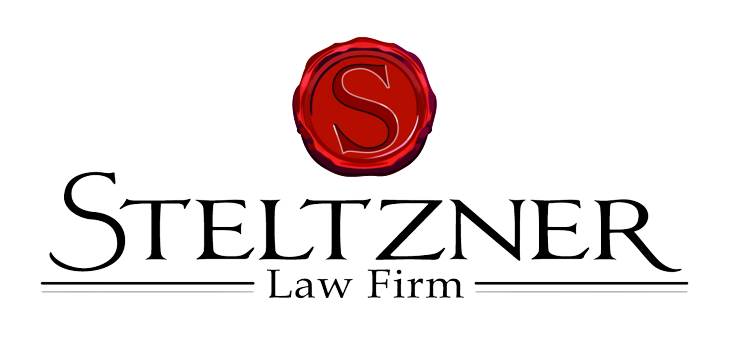A First-Time Home Buyer’s Guide to the Carolinas: 10 Common Questions Answered

The journey to homeownership is filled with excitement and anticipation. For first-time home buyers, it represents a significant milestone—a step toward building a future. This path, while rewarding, can present complex questions, particularly within the distinct real estate environments of North and South Carolina. Understanding the financial, procedural, and legal steps is critical for a smooth and successful experience. Many aspiring homeowners feel a mix of eagerness and uncertainty, which is a completely normal part of the process. Having a clear roadmap can make all the difference.
This guide is designed to provide that clarity. We will address the ten most common questions that first-time home buyers have when purchasing property in the Carolinas. From initial financial planning to the final moments of receiving your keys, this article will walk you through the landscape of the local real estate market, helping you make informed and confident decisions.
What is the first step to buying a house in the Carolinas?
The first step for a first-time home buyer in North or South Carolina is to get pre-approved for a mortgage. This process helps you understand your budget, shows sellers you are a serious buyer, and allows you to move quickly when you find the right home. Pre-approval involves a lender reviewing your finances to determine the loan amount for which you qualify. It establishes a clear price range for your home search and demonstrates your purchasing capability to sellers and their agents. This initial action sets a solid foundation for everything that follows.
Table of Contents

Section 1: Financial Preparation FAQs
Question 1: How much money do I need to save to buy a house in NC or SC?
Calculating the funds needed for a home purchase involves more than just the down payment. Several components make up the total initial investment. A clear understanding of these costs is essential for proper financial preparation.
- Down Payment: This is the portion of the home’s purchase price you pay upfront. The required percentage varies by loan type. Conventional loans may require as little as 3% down. Federal Housing Administration (FHA) loans often start with a 3.5% down payment. For eligible service members, veterans, and surviving spouses, a Department of Veterans Affairs (VA) loan may require no down payment at all. Similarly, United States Department of Agriculture (USDA) loans, for eligible rural properties, can also offer a zero-down-payment option.
- Closing Costs: These are fees associated with finalizing the real estate transaction. They typically range from 2% to 5% of the total loan amount. Closing costs cover a variety of services, including the lender’s loan origination fees, appraisal fees, and title services. In the Carolinas, these also include the real estate attorney’s fees for managing the closing. Having funds set aside specifically for these costs is a critical part of your budget.
- Due Diligence Fee (North Carolina): When buying a home in North Carolina, buyers often pay a “due diligence fee” directly to the seller. This is a negotiated, non-refundable amount that gives the buyer a period to conduct inspections and secure financing. The fee compensates the seller for taking the property off the market during this time.
- Earnest Money: This is a separate deposit made by the buyer to show good faith. The funds are held in a third-party escrow account and are typically applied toward the down payment or closing costs at closing. If the sale proceeds as planned, the money is credited to the buyer. If the contract is terminated under specific, agreed-upon conditions, the earnest money is usually refundable.
Question 2: What credit score do I need to buy a home in the Carolinas?
Your credit score is a major factor in a lender’s decision to approve a mortgage and determines the interest rate you will receive. While specific requirements can vary between lenders, general guidelines exist for different loan programs.
- FHA Loan: Lenders typically look for a minimum credit score of 580.
- Conventional Loan: A score of 620 or higher is generally the standard for a conventional mortgage.
- VA Loan: The VA itself does not set a minimum credit score, but individual lenders who issue the loans usually require a score of around 620.
- USDA Loan: For a USDA loan, a credit score of 640 or higher is commonly required.
A higher credit score often translates to a lower interest rate, which can lead to significant savings over the life of the loan. It is beneficial to review your credit report and address any issues well before you begin the home-buying process.

Section 2: The Home Buying Process FAQs
Question 3: Do I need a real estate agent as a first-time buyer?
Yes, it is highly recommended for a first-time buyer to use a real estate agent. An experienced agent is an invaluable advocate and guide. They possess deep market knowledge of neighborhoods, pricing trends, and property availability, including listings that may not be widely advertised. Their expertise is especially important during negotiations, where they work to secure favorable terms on your behalf.
A real estate agent also manages the extensive paperwork and deadlines involved in a transaction, ensuring that contracts are sound and that your interests are protected. One of the most significant benefits for buyers is that the seller typically pays the commission for both their agent and the buyer’s agent from the sale proceeds. This means you can have professional representation without direct out-of-pocket expense. The guidance of a good agent provides structure and confidence to the search and purchase process. The team at Steltzner Law Firm frequently collaborates with real estate professionals to create a supportive network for buyers.
Question 4: What is the Due Diligence Period in North Carolina?
North Carolina’s “Due Diligence Period” is a negotiated timeframe during which a buyer can perform any desired inspections, secure financing, and terminate the contract for any reason. In exchange for this right, the buyer pays a non-refundable “Due Diligence Fee” directly to the seller. This period is a critical phase of the transaction. It empowers the buyer to conduct thorough investigations of the property without risk of losing their earnest money if they decide to withdraw from the contract.
During this time, a buyer will typically arrange for a general home inspection, pest inspection, and any other specific evaluations needed, such as for a well or septic system. It is also the time to finalize loan approval with the lender and have an appraisal completed. If any issues arise that the buyer is uncomfortable with, they can terminate the contract before the period expires and only forfeit the due diligence fee.
Question 5: How is buying a home in South Carolina different from North Carolina?
While the states are neighbors, their real estate procedures have important differences. Buyers in Rock Hill, SC, and surrounding areas will find the process distinct from that in North Carolina.
- North Carolina: The transaction is centered around the due diligence period and the non-refundable fee. A home is typically sold “as-is.” The buyer uses the due diligence period to decide if they want to proceed with the purchase, and they can walk away for any reason.
- South Carolina: The process uses a “Repair Procedure.” After a home inspection, the buyer can submit a list of requested repairs to the seller. The seller can agree to all, some, or none of the requests. If the buyer and seller cannot reach an agreement on the repairs, the contract can be terminated, and the buyer’s earnest money is typically refunded. This creates a more direct negotiation over the property’s condition. Partnering with a knowledgeable firm like Steltzner Law Firm can help you navigate these regional distinctions.

Section 3: Legal & Closing FAQs
Question 6: Do I need a lawyer to buy a house in the Carolinas?
Yes, both North Carolina and South Carolina are “attorney states,” meaning you are legally required to have a licensed real estate attorney manage your closing. A real estate attorney is a neutral third party who represents the transaction itself, protecting the interests of both the buyer and the seller by ensuring all legal requirements are met.
The attorney’s role is multifaceted. It begins with a thorough title search to confirm the property is free of liens or ownership disputes. The attorney then prepares all necessary legal documents, coordinates with the lender, and conducts the closing meeting where the final papers are signed. After the signing, the attorney disburses all funds and formally records the new deed with the county. With over 21 years of dedicated experience, our professionals at Steltzner Law Firm handle these details with precision.
Question 7: What inspections should I get?
Inspections are a buyer’s opportunity to learn about the true condition of a property. A comprehensive set of inspections can uncover hidden issues and prevent future surprises.
- General Home Inspection: This is the most common inspection. It covers the home’s primary systems, including its structure, roof, electrical, plumbing, and HVAC.
- Pest/Termite Inspection: Often required by lenders, this inspection checks for wood-destroying insects and other pests.
- Radon Test: Radon is a naturally occurring radioactive gas that can be present in homes. Testing is recommended, as long-term exposure can be a health risk.
- Well & Septic Inspection: For properties not connected to municipal water and sewer, these inspections are essential to verify the systems are functioning correctly.
- HVAC Inspection: A specialist can provide a more detailed evaluation of the heating and cooling systems than a general inspector.
Question 8: What happens on closing day?
Closing day is the culmination of the home-buying process. It is the day ownership is legally transferred. Here is what you can expect:
- Final Walk-Through: Before going to the closing, you will visit the property one last time. This is to confirm it is in the same condition as when you agreed to purchase it and that any negotiated repairs have been completed.
- Go to the Attorney’s Office: You will meet at the office of the closing attorney, such as the Steltzner Law Firm. Be sure to bring a valid photo ID and a cashier’s check or proof of wire transfer for your down payment and closing costs.
- Sign Documents: You will sign a series of legal documents. These include the mortgage note, which is your promise to repay the loan, and the deed, which transfers ownership. The attorney will explain each document.
- Attorney Records the Deed: After all papers are signed, the attorney’s office will file the new deed with the county’s Register of Deeds. Find out more about our secure real estate closings.
- Get Your Keys: Once the deed is officially recorded, you are the new homeowner. Congratulations!

Conclusion & Next Steps
Question 9: What are the biggest mistakes first-time buyers make?
Awareness of common pitfalls can help you avoid them. Some frequent missteps include not getting pre-approved before house hunting, underestimating the total costs of homeownership beyond the mortgage, and skipping important inspections to save a little money upfront. A successful purchase is built on careful preparation. A clear understanding of the process and a reliable team of professionals are your best assets. Protecting your ownership with proper title services and title insurance is a foundational step that should never be overlooked.
Question 10: I’m ready to start. What’s next?
Taking the first step is often the hardest part. Now that you have a better understanding of the process, your next actions are clear. Begin by speaking with a qualified mortgage lender to get pre-approved and establish your budget. Then, connect with a local real estate agent who can help you start your search. When you find the right home and are ready to proceed, you will need a trusted legal partner to handle the complexities of the closing.
The professional team at Steltzner Law Firm is here to guide first-time home buyers in Rock Hill, SC, and throughout the Carolinas. We are dedicated to making your closing experience clear, secure, and successful. Contact our experienced team today to learn how we can assist you on your path to homeownership.
